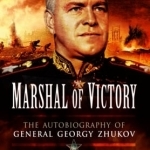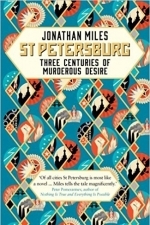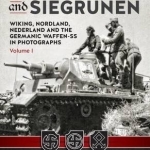
Voices of the Flemish Waffen SS
Book
At the very beginning of the Second World War Germany invaded and occupied Belgium. Yet less than a...

Letters from a Life: The Selected Letters of Benjamin Britten, 1913-1976: v. 6: 1966-1976
Book
The sixth and final volume of the annotated selected letters of Benjamin Britten, edited by Philip...
Shrinking the Technosphere: Getting a Grip on Technologies That Limit Our Autonomy, Self-Sufficiency and Freedom
Book
Over the past two centuries we have witnessed a wholesale replacement of most of the previous...

Marshal of Victory: The Autobiography of General Georgy Zhukov
Georgy Zhukov and Geoffrey Roberts
Book
Marshal of the Soviet Union Georgy Konstantinovich Zhukov remains a national hero in today's Russia...

St Petersburg: Three Centuries of Murderous Desire
Book
'This extraordinary book brings to life an astonishing place. Beautiful prose renders brutality...

Sunwheels and Siegrunen: Wiking, Nordland, Nederland and the Germanic Waffen-SS in Photographs: Volume 1
Book
Western European collaboration with the Germans is still misunderstood, nearly 70 years after the...
graveyardgremlin (7194 KP) rated The Madonnas of Leningrad in Books
Feb 15, 2019
A little note on the artwork, I noticed a mistake, I know that there is no such thing as Belgium Delft. My mom has a collection that started with her mom. I grew up with it, so I know a little about it. I also did some research and Belgium was once part of the Netherlands but that wouldn't make it Belgium Delft. Now, whether Belgium now has their own kind of Delft-like pottery, I wouldn't know. This detail has made me a little weary about the author's descriptions and history on other pieces of art in this book, which is unfortunate. As I said before, the descriptions of the artwork are exceptional. With that, the author shows promise with this debut, and hope that in the future, she won't try for too much. I'm sure others will like this better than I did and not be as critical. :)
Leanne Crabtree (480 KP) rated The Bronze Horseman in Books
Jan 6, 2021
Reading this on Scribd probably wasn't the best idea ever. Having to sit at my computer for god knows how many hours while I read all 800+ pages...
It started great, I loved Tatiana and her first meeting with Alexander...but then it went downhill from there when it turned out Alexander was the guy her sister had been seeing. It got progressively worse for me when she decided to end whatever blossoming thing they had as she felt she would break her sisters heart if she got together with him instead. This continued for almost half the book, which drove me mad--it was pretty repetative, especially considering it was set during the war and they might not live to see the end of it.
People changed over that time, lots of people died. I think one of my updates quite clearly captured this:
<blockquote>"Really driving me mad now :( You're sister is not a nice person anymore, Tatiana. If anyone deserves Alexander it's you for still being the same person you were at the start of the book, the same person that Alexander fell in love with. I hope, beyond everything, that you break your promise so that he has a reason to call things off with your sister so you can be together!!!!" </blockquote>
The ups and downs every few % did my head in. One minute they were kissing and saying nice things and the next they were shouting and arguing with each other.
I thought it would improve after the halfway point when they finally leave Leningrad but it continued for another 10% or so. I was expecting them to do the deed and then be all nice and happy. And this was the case for a while. Eat, have sex. Swim, have sex. Wash up, have sex...Repetative once more.
By the 70% mark, after reading each page word for word--and after almost a month of reading--I just wanted it over with and skimmed the remaining 250 pages. I got the gist and though I was happy they got together in the end I can't say I'm interested in finishing the trilogy. Really, stupidly, long books are not for me.
Gareth von Kallenbach (980 KP) rated Dunkirk (2017) in Movies
Jul 11, 2019
When we discuss, reflect, or are taught about World War II, we often think the turning points of the war as the Battle of the Bulge, Leningrad, Midway, or D-Day. In doing this, we overlook moments like Dunkirk. Christopher Nolan exposes how vital this moment was in determining the fate, not only of the war, but the world in Dunkirk.
It is hard to describe what the film is like just from the visuals. It captures you and surrounds you by making the audience feel as though they are witnessing these events from a third-person perspective, as well as, through the eyes of those involved. The film itself is not limited to just the war or a discussion of the circumstances that led up to the war itself. There are no major battles shown, however, the film demonstrates quite vividly the horrors of war, the confusion, the chaos, the brutality, and the fear that each moment might be your last.
Dunkirk, masterfully tells the story of those involved in the evacuation of those troops that found themselves being pursued by Nazi Germany. Each frame will have audiences fearing for the safety of the men on the screen and hoping that they will somehow make it home despite all indications that their fate is sealed. Nolan gives audiences the opportunity to see the events in a multilayered way so that we can understand all of the moving parts involved in this massive undertaking. It renews the appreciation that many of us have for those who fought in World War II and offers a new sense of appreciation for younger generations who are far removed from those events. Most impressive about the film is its ability to be more historically accurate in displaying the different people who actually were fighting. It is not, like Saving Private Ryan, a film that exaggerates American participation in the war to make it look as though the only people fighting were Americans and Nazis. Dunkirk shows how the French, British, and Belgians, of various colors and backgrounds were fighting well before summer of 1944.
The film also pulls of quite an ambitious task by removing the Nazis from the film. This is not to say that there is no German presence in the film, rather, they minimize the focus on the Nazis in order to keep the focus on those evacuating and those involved in assisting with the efforts. In my viewing, I felt that this strengthened the film in adding to the fear by having a faceless enemy, one that could be lurking around the corner or coming around the corner at any moment. This added to the tension to make audiences feel the fear that so many of these young men must have had as they waited to board their ships to get home.
Dunkirk is impressive, emotional, and full of tension. It raises the bar with respect to how historically-based films should be in the representation of events. It does not rely on one linear story to capture the audience. It is an intelligent and overdue homage to the men and women who did all they could to ensure that these men made it home.


